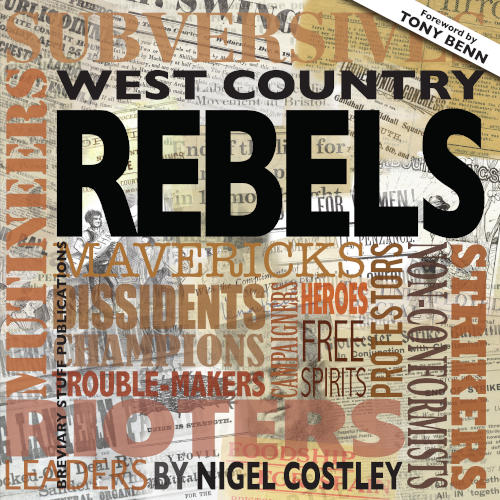Nigel Costley started work as an apprentice compositor – one of the last to be trained in ‘hot metal’. While learning the trade it was changing rapidly and he was made redundant twice. It was his union, the National Graphical Association, that helped him find new work and get re-trained as technology marched on.
Nigel was elected Father of the Chapel and then, at 24-years-old, the youngest full-time officer in the union. He spent fifteen years in the role through the most turbulent times for printing and trade unionism.
He particularly championed support for those out of work, inlcuding establishing a unique training cooperative. Having escaped school as soon as he could, Nigel returned to education on a part-time basis, eventually achieving a MSc with Leicester University.
He became South West TUC Regional Secretary in 1996. Nigel is responsible for the way the TUC remembers the Toluddle Martyrs and he has overseen the transformation of the annual rally into a hugely popular celebration of trade unionism.
Sold Out!
Nigel Costley – West Country Rebels
£20.00
Forthcoming
UNAVAILABLE
What comes to mind when you think of the West Country? Beautiful beaches and coastline perhaps, rich countryside and moorland, great historic sites such as Stonehenge or perhaps the grace of Regency Bath or the stunning design of Brunel’s Clifton Suspension Bridge? You may think of the West Country as the peaceful, quiet corner of Britain where people visit for holidays or spend their retirement.
What may not spring to mind is the Western Rebellion against enclosures, the bloody battles for fair taxes, the Prayer Book Rebellion against an imposed English Bible, the turbulent years of the Civil War and the Monmouth Rebellion that ended with the ruthless revenge of Judge Jefferies. You may know little about the radical edge to the region’s maritime past such as the naval mutinies, smuggling and struggle for safety.
The West Country was famous for its wool and cloth but the battles by textile workers is less well known. For generations communities around the South West organised and engaged in riot and uprising, for food, for access, for fair tax and to be heard in a society that denied most people the vote. Women were at the centre of many of these disputes and their battle with poverty and inequality is featured along with West Country women who challenged those that kept them out and held them back.
Trade unionism has many a West Country story to tell, from the Tolpuddle Martyrs in Dorset, the longest strike in Plymouth, the great china clay strike of 1913, ‘Black Friday’ in Bristol and the battle for rights at GCHQ in Cheltenham.
This book features these struggles along with the characters who defied convention and helped organise around dangerous ideas of freedom, equality and justice.















